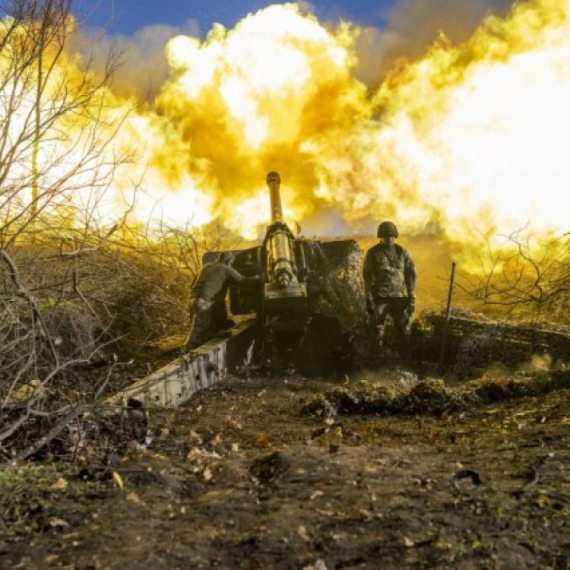UN on Medak Pocket: Planned ethnic cleansing
A UN report on the 1993 Croatian attack on ethnic Serbs in the Medak Pocket blames Rahim Ademi for the crimes there.
Tuesday, 30.10.2007.
14:26

A UN report on the 1993 Croatian attack on ethnic Serbs in the Medak Pocket blames Rahim Ademi for the crimes there. "The ethnic cleansing was conducted in a thorough and systematic manner with a clear goal of making the zone uninhabitable for a period of time," a Canadian UNPROFOR battalion report was quoted yesterday in Zagreb, as the trial of former generals Rahim Ademi and Mirko Norac continued. UN on Medak Pocket: Planned ethnic cleansing The case was referred to Croatia by the Hague Tribunal. According to the detailed and precise reports, the Canadian soldiers found themselves in the Serb villages in the Gospic area on September 16, 1993, after the Croatian forces withdrew from the area. The document says that in only 12 hours, 164 houses and 148 facilities were either burned or mined, with almost all the livestock killed, and wells poisoned. The Canadians discovered 16 dead bodies, including women aged between 16 and 25, killed with shots from firearms, and then burned. The report says that as the UN troops found a large number of discarded surgical gloves and dug up trenches, they concluded the Croatian soldiers must have taken most of the victims' bodies to secondary locations. Further proof for this is seen in the fact that soon after the campaign, the Croats handed over to the Serb side 54 bodies, while the 16 victims found by the Canadians were located in inaccessible locations. The UN report concluded that the details about the ethnic cleansing that took place indicated necessary logistical support, participation of several units, and planning, the responsibility of which is put squarely on the shoulders of Ademi, then commander of the Gospic military area. The report also recommended to the Croatian authorizes to punish the perpetrators of the war crimes, and suggested Ademi's removal from office as a minimal measure. The lawyers for the second-accused, Mirko Norac, objected to the report read in the Zagreb District Court Monday, describing it as "poorly written, biased, based solely on information obtained from the enemy." Ademi, on the other side, contested what he said were incorrect statements related to a meeting held during the military campaign in the Medak Pocket. At the time, Ademi was a brigadier, not a full general, as the report claims, "which means that UNPROFOR did not know who they were meeting with," he said.
UN on Medak Pocket: Planned ethnic cleansing
The case was referred to Croatia by the Hague Tribunal.According to the detailed and precise reports, the Canadian soldiers found themselves in the Serb villages in the Gospić area on September 16, 1993, after the Croatian forces withdrew from the area.
The document says that in only 12 hours, 164 houses and 148 facilities were either burned or mined, with almost all the livestock killed, and wells poisoned.
The Canadians discovered 16 dead bodies, including women aged between 16 and 25, killed with shots from firearms, and then burned.
The report says that as the UN troops found a large number of discarded surgical gloves and dug up trenches, they concluded the Croatian soldiers must have taken most of the victims' bodies to secondary locations.
Further proof for this is seen in the fact that soon after the campaign, the Croats handed over to the Serb side 54 bodies, while the 16 victims found by the Canadians were located in inaccessible locations.
The UN report concluded that the details about the ethnic cleansing that took place indicated necessary logistical support, participation of several units, and planning, the responsibility of which is put squarely on the shoulders of Ademi, then commander of the Gospić military area.
The report also recommended to the Croatian authorizes to punish the perpetrators of the war crimes, and suggested Ademi's removal from office as a minimal measure.
The lawyers for the second-accused, Mirko Norac, objected to the report read in the Zagreb District Court Monday, describing it as "poorly written, biased, based solely on information obtained from the enemy."
Ademi, on the other side, contested what he said were incorrect statements related to a meeting held during the military campaign in the Medak Pocket.
At the time, Ademi was a brigadier, not a full general, as the report claims, "which means that UNPROFOR did not know who they were meeting with," he said.



























































Komentari 8
Pogledaj komentare